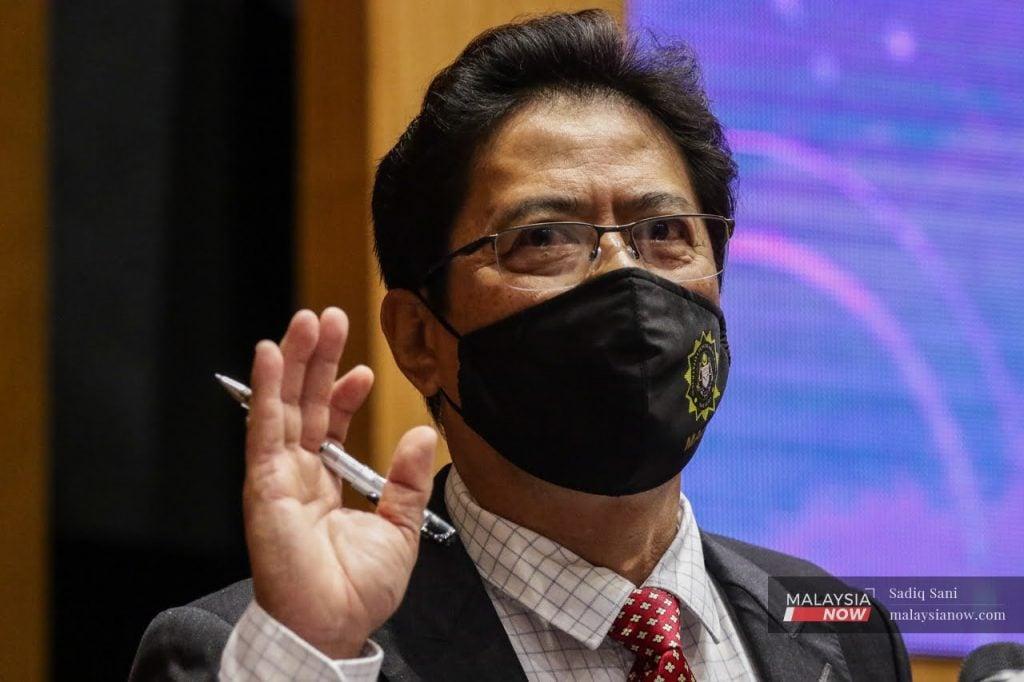If one PSC’s act is unlawful, let the other PSC act
The Public Service Commission is empowered to put an officer of the general service of the federation to a garden leave to facilitate an investigation against the officer.
Just In
I refer to Kassim Noor Mohamed’s “Did PSC exceed its powers in calling Azam?”
Kassim contends that “the current situation of the PSC (parliamentary select committee) investigating the chief commissioner of the MACC may not have been commenced lawfully, in that it is highly doubtful and suspect if a referral was made by the House to the PSC to investigate. This is a necessary requirement of Order 83(4) of the Standing Orders.”
He adds that if “no such referral from the House was made, then the PSC’s investigation into Azam is unlawful and must stop, and should only commence following the correct procedures.”
Perhaps we should look at Section 5(4) of the MACC Act 2009. It states that the MACC chief commissioner “shall, during his term of office as such, be deemed to be a member of the general public service of the federation for purposes of discipline.”
All officers and junior officers of the MACC are also members of the general public service of the Federation.
The general public service of the federation is listed as one the public services under the Federal Constitution – Article 132(1)(c). Article 132(2) then stipulates that the qualifications for appointment and conditions of service of persons in the public services – other than the public service of each state – may be regulated by federal law and, subject to the provisions of any such law, by the Yang di-Pertuan Agong.
Now, in exercise of the powers conferred by Article 132(2), the Agong has indeed made regulations called the Public Officers (Conduct and Discipline) Regulations 1993 – PU(A) 395/1993 – which came into force Dec 15, 1993.
The commission that exercises jurisdiction over the general public service of the federation is the Public Service Commission (PSC) established under Article 139(1) of the constitution. The PSC is the disciplinary authority defined under regulation No. 3 of Regulations 1993.
It looks like Regulations 1993 have been overlooked, particularly regulation No. 43 on “interdiction for the purpose of investigation”.
Regulation No. 43(1) states that “if an officer is alleged or reasonably suspected of having committed a criminal offence or a serious disciplinary offence”, the disciplinary authority having the jurisdiction to impose a punishment of dismissal or reduction in rank on such officer may interdict the officer for a period not exceeding two months for the purpose of facilitating investigation against the officer.
“Criminal offence” is defined as any offence involving fraud or dishonesty or moral turpitude.
An officer who has been interdicted under the regulation is entitled to receive full emoluments during the period of his interdiction.
Simply put, an interdiction is an official instruction from the disciplinary authority telling an officer that he or she is to stay away from work during the notice period, while still remaining on the payroll.
Perhaps the word is best described in Malay, that is, “ditahan kerja”.
In laymen’s terms, the officer is put on “garden leave”.
Clearly, the PSC is empowered under Regulation 1993 – made by the Agong under authority of the highest law of the land – to put an officer of the general service of the federation to a garden leave to facilitate an investigation against the officer.
By Azam’s own admission of allowing Nasir to use his share trading account to buy millions of shares in two public-listed companies in 2015, there are reasonable suspicions or reasons suspect that offences have been committed to start off an investigation under Sections 25 (as against Nasir) and 29A (as against Azam) of the Securities Industry (Central Depositories) Act 1991.
The SC has accordingly initiated the process of calling in Azam and Nasir.
So, let’s hear from the PSC – that’s the Public Service Commission and not Parliamentary Select Committee.
The views expressed in this article are those of the author(s) and do not necessarily reflect the position of MalaysiaNow.
Subscribe to our newsletter
To be updated with all the latest news and analyses daily.
